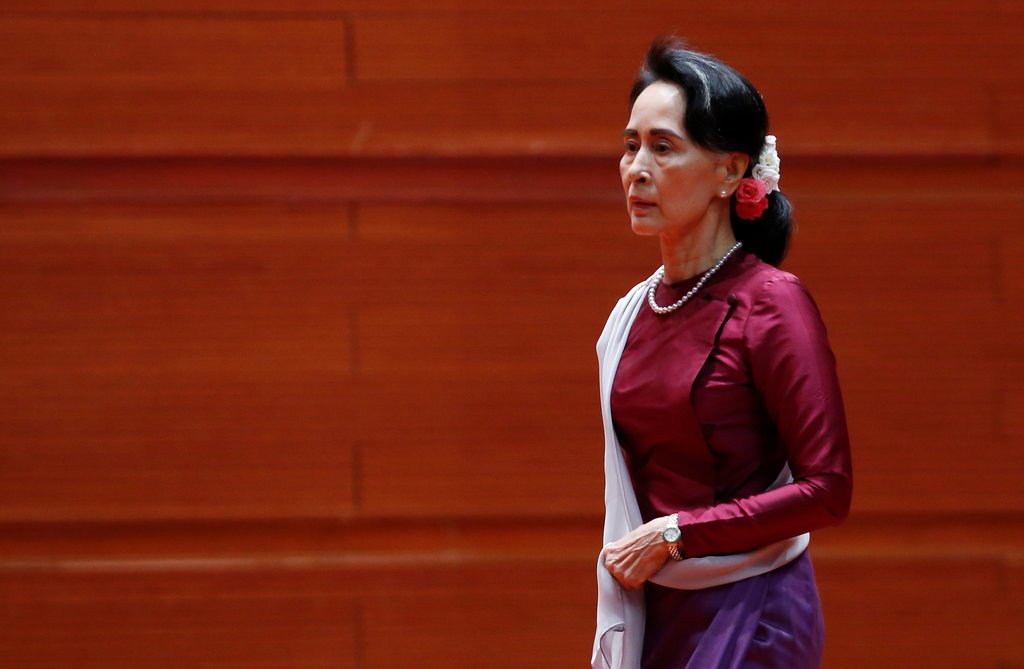
The decision by the United States Holocaust Memorial Museum to rescind its human-rights award to Daw Aung San Suu Kyi is sad, and proper.
Few people in modern times had evoked as much admiration and support as the courageous daughter of Myanmar’s founding father when she defied the dictatorial junta in Myanmar through 15 years of house arrest. And few people have been as disappointing in their subsequent failure to act against, or even to acknowledge, the horrific persecution of the Rohingya Muslim minority in her country.
“We had hoped that you — as someone we and many others have celebrated for your commitment to human dignity and universal human rights — would have done something to condemn and stop the military’s brutal campaign and to express solidarity with the targeted Rohingya population,” the Holocaust Museum wrote in an open letter explaining why it was taking back the Elie Wiesel Award it had presented five years earlier. Instead, the letter said, the ruling party Ms. Aung San Suu Kyi leads refused to cooperate with United Nations investigators, used “hateful rhetoric” against the Rohingya and cracked down on journalists trying to report on the vicious suppression of the group.
Like many other former admirers of Ms. Aung San Suu Kyi, the museum said it understood the pressures on her from a military establishment that still holds most of the country’s power, and a Buddhist majority which regards the Rohingya as trespassers who have no historic place in Myanmar. Hundreds of thousands of Rohingya have fled to Bangladesh to escape a campaign of execution, rape and arson, which the United Nations and the United States have termed ethnic cleansing.
Sadly, there is little to suggest that Ms. Aung San Suu Kyi has been coerced into silence, and far more evidence that she shares the Buddhist nationalism that is behind the military repression of the Rohingya. By many accounts, she has been furious when international visitors have raised the Rohingya issue with her, and has disparaged human rights groups and international media organizations over how the disastrous treatment of the Rohingya is presented to the world.
In January, Bill Richardson, a former governor of New Mexico and longtime friend of Ms. Aung San Suu Kyi, resigned from Myanmar’s advisory board on the Rohingya crisis, calling it a pro-government “cheerleading squad” and accusing her of “an arrogance of power.” Other former supporters, including the Nobel laureates Desmond Tutu and Malala Yousafzai, have publicly censured Ms. Aung San Suu Kyi.
The Holocaust Museum’s action is a sorrowful witness to the fall of a hero, but also to the real face of the enemy the Rohingya face in their land. The United States has already imposed sanctions on many generals and others accused of crimes against the Rohingya, and the United Nations and other nations should urgently add to the pressure.